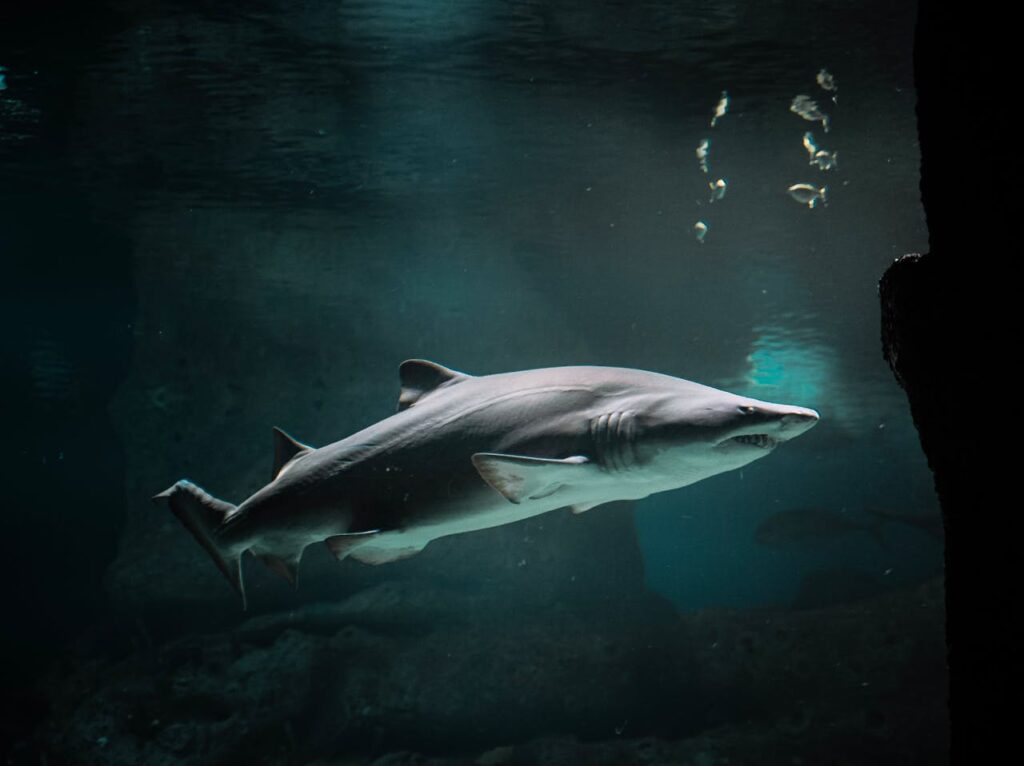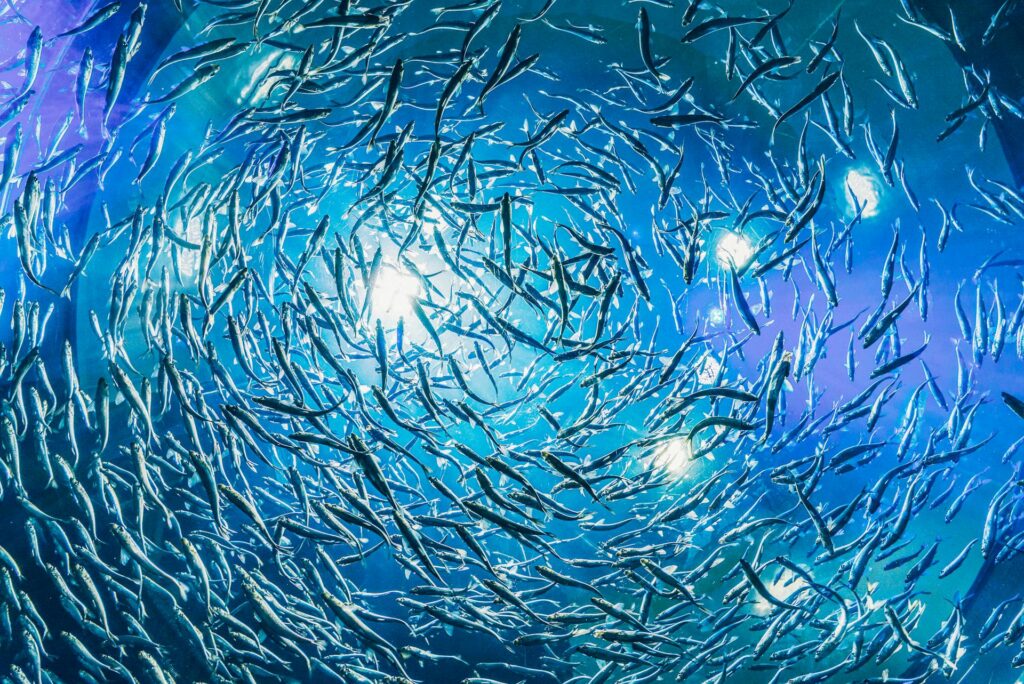Sharks are one of the most feared animals on the planet. However, is this fear rational or irrational?
For hundreds of years humans have lived by the sea in communities that rely on the ocean as a way of survival. Historically we have regarded sharks with a mix of fear and respect as our predecessors in the aquatic world. In these communities the importance of sharks has been told through mythology. One example of this is the god Ka-moho-ali’i, who is a key figure in Hawaiian folklore. Often depicted as having a human upper half and a shark lower half, Ka-moho-ali’i is a guide and protector of humans who enter the water. Sharks are also seen as communicators of the spirit realm which is seen from Indigenous Australian to Native American communities. This is often connected to the belief of sharks guiding them through dangerous waters and providing abundance of fishing.
Despite this, sharks have also been represented as creatures of doom and death in our folklore and media. Following the adoption of Christianity in Oceania in the early 1800s, many of the beliefs protecting sharks broke down [4]. Fishing of sharks increased as the respect for them broke down and waters once teeming with sharks became desolate. In modern times, shark attacks have become sensationalised news stories and scary movies. Also you could not talk about sharks in media without mentioning Jaws, the 1975 movie and long lasting effects on the perception of sharks. Hollywood portrays sharks as unsatiable killing machines. In reality while still being wild animals, they are not particularly interested in biting humans. Negative perceptions of sharks harm conservation work despite their vital role in the marine ecosystem.

Big Shark Underwater: Photo by Vova Kras
Find out more in the article Shark Folklore Around the World: Myths and Legends: https://ourmarinespecies.com/c-sharks/shark-folklore-around-the-world-myths-and-legends/
However, scientists are trying to fight these misconceptions about shark behaviour and stop the stereotypes by providing factual evidence and more awareness about these creatures. Shifting public perceptions of sharks is significant because it heavily influences choices made for wildlife protection policies and marine conservation work.
Why are sharks so important? Sharks are key to sustaining healthy ecosystems. At the top of the food chain, they keep prey populations under control. If a prey species reaches a very high population, this causes instability in the ecosystem. Seeing an abundance of sharks gives conservationists a key indicator of a healthy ocean. This is because predators increase diversity in an ecosystem and decrease competition between competing prey species. For example, sharks protect seagrass meadows and kelp forests from overgrazing which are crucial for carbon absorption.
Are sharks dangerous to humans? Well in most cases it is likely the other way around. From the Florida Natural History Museum’s International Shark Attack file, there were 14 confirmed shark-related fatalities in 2023. In comparison, there were 1,711 road collision casualties in 2022 just in Britain due to the Department of Transport. It is also widely compared that you are more likely to be killed by a coconut falling on your head than by a shark.
What are the main problems sharks face? Shark fin eating primarily in China was started as a display of wealth by emperors and Hong Kong has the largest market. This means sharks are being caught on a large scale depleting the population. Another major problem is bycatch as sharks are caught by fisherman accidentally during fishing. Sharks reproduce more slowly than other animals as they have long pregnancies, mature slowly and produce fewer young therefore are more vulnerable to fishing pressure. Another problem they face is climate change for two reasons. One reason is that due to rises in water temperature it affects the process of shark eggs hatching. The other reason is that it negatively impacts the environment that the sharks live in so it has damaging effects on shark populations.
What work is being done to face these problems? There are many organisations working towards better conservation of sharks including a few listed below. In particular, I found a fascinating article ‘A scientific mission to save sharks’ written by Angela Posada-Swafford about shark fins. It talks about a study done by Cardeñosa and molecular ecologist Demian Chapman where they talk about identifying where the shark fins that are traded come from by using DNA analysis and how they have developed an affordable way for port officials to detect illicit trade by using DNA analysis. Also the fact that 70 species are protected by The Convention on International Trade in Endangered Species of Wild Fauna and Flora (CITES).
https://bigthink.com/life/save-the-sharks
Sharks found in british waters
Basking shark
The second largest shark in the world, the basking shark, are seasonal visitors in British waters preferring the warmer months. These sharks can reach up to 12m long. Despite how large they are, these sharks are harmless because they are filter feeders. Meaning they actively avoid large animals when feeding and mainly eat plankton.
Where to find more info:
https://s3.eu-west-1.amazonaws.com/media.mcsuk.org/documents/Basking_Shark_Poster.pdf
Basking Sharks
Small spotted catsharks
The most common sharks found in the UK are small spotted catsharks. They can be found residing in shallow waters on the sea bed and are approximately 75 cm.
Blue Shark
Blue shark’s are one of the most widespread sharks found in our oceans and travel 5000 miles in a single trip. In the summer months, they can be found in offshore waters of Cornwall. As their name suggests they are identifiable by their distinct blue colour over the top of their bodies and white underbelly.
Blue Sharks
Greenland Shark
Deep sea dwellers that hardly ever come in contact with humans. Live at least 250 years and can reach the ages of up to 500 years old. How they are able to live this long may be due to their slow metabolism but the definitive reason has been hard to determine. They only recently discovered that this shark can live this long because of the connection that they can use carbon dating to determine what age a greenland shark is. Found in Scottish and Northern English waters.
Angelshark
This type of shark look half way between a shark and a ray as they spend most of their time buried under sand in the muddy areas of the seabed. This type of shark is nocturnal and swim mostly at night. Once common in the British Isles, they have become critically endangered. The main threat to them being fishing especially deep water trawling and now as there are so few in number genetic diversity. In the UK, they are protected up to 6 nautical miles from the coast but this just means that they can’t be caught deliberately and are not protected from being accidental bycatch. Despite this, they are more likely to survive being caught than other deep sea fish so conservationists are trying to teach fisherman how to identify and handle them when releasing back into the ocean to best help their survival.
Where to find more info:
https://www.discoverwildlife.com/animal-facts/marine-animals/angelshark-guide
Information on conservation project in Wales can be found here: https://angelsharknetwork.com/wales/
Shortfin Mako Shark
The Shortfin Mako shark is the fastest sharks to be found in British waters and can reach the speed of 45mph. There food of choice being small slippery fish and other fast moving prey. They are seasonal visitors who visit in the summer months of the year.

Underwater Photography of School of Fish: Photo by Harrison Haines
Despite, there only being six types of sharks on this list, according to the Shark Trust at least 21 species live British waters all year round. Found out more about the rest of them here: https://www.sharktrust.org/pages/faqs/category/british-sharks
Organisations that support sharks
Marine Conservation Society
The Shark Trust
Shark Project